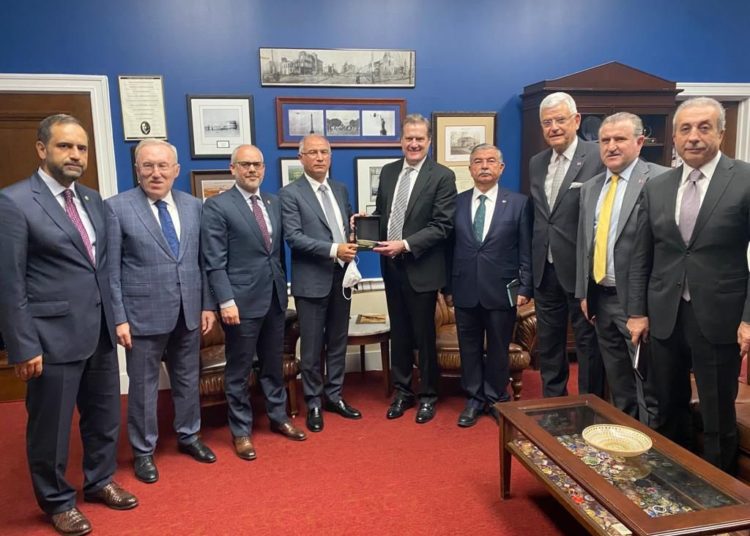Levent Kenez/Stockholm
A delegation of Turkish ruling party deputies has been in the US since Wednesday as part of lobbying efforts on disputed issues. Meeting with members of the Senate and the House of Representatives, the delegation put forward Turkish government arguments mainly on S-400 missiles, the purchase of new F-16 fighter jets and modernization of Turkey’s aging F-16 fleet. However, a Nordic Monitor study shows that the delegates strongly supported an S-400 agreement in 2017 with Russia that caused a crisis of confidence between the two allies in which the US imposed sanctions on Ankara in 2020.
The head of the Turkish delegation is Efkan Ala, a former interior minister who is now responsible for the foreign operations of the ruling Justice and Development Party (AKP). Ala, who allegedly kept silent about the torture of pro-NATO officers after a failed coup in 2016, is now responsible for party organizations abroad, which are also known as the long arm of Turkish President Recep Tayyip Erdoğan. Ala went to the US last March, participating in efforts to open a representative office of Islamist AKP organization the Union of International Democrats (UID).
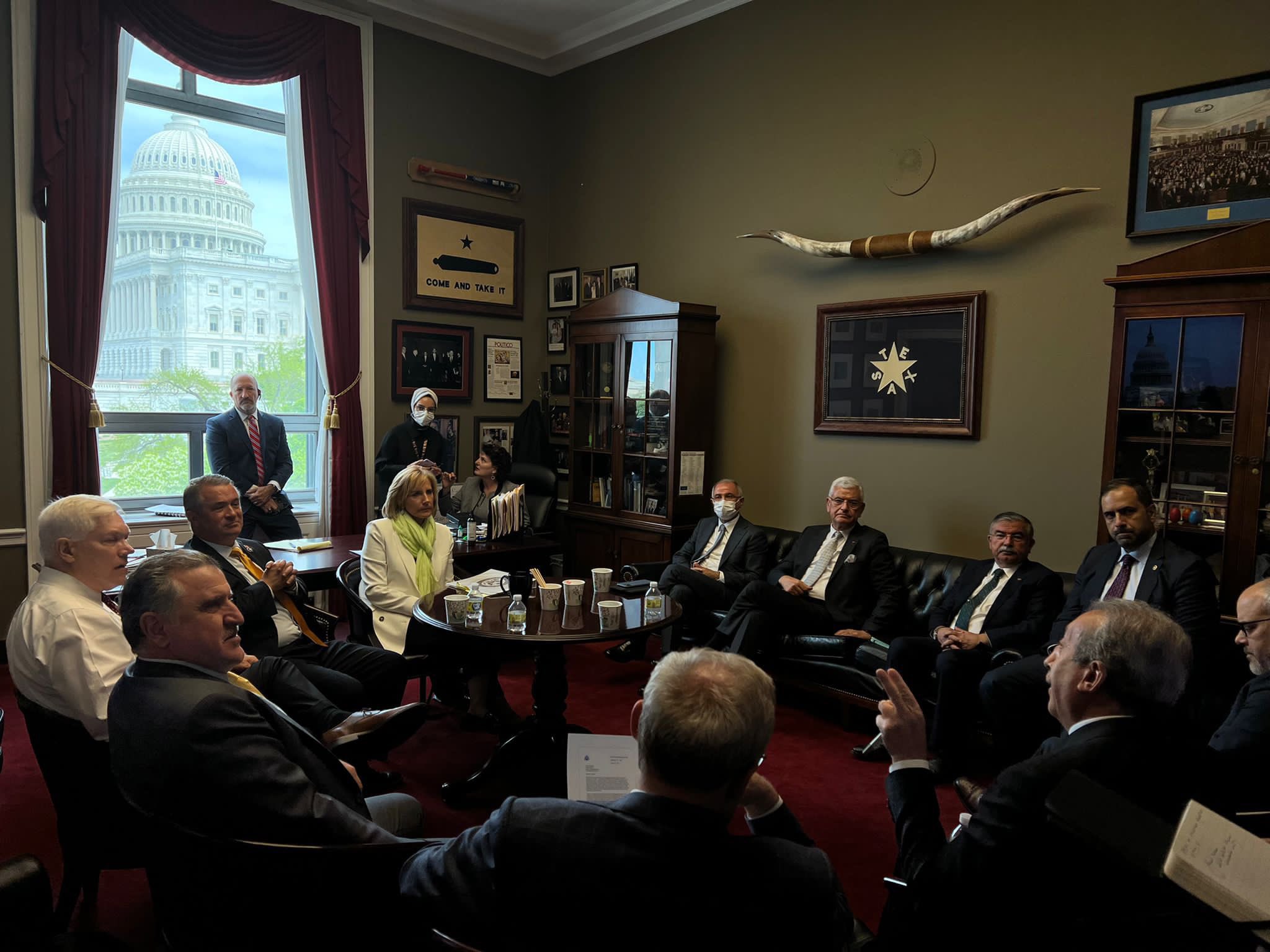
Ahmet Berat Çonkar is the most notable of the members of the delegation. Çonkar, co-chairman of the Turkish-Russian Social Forum, a sub-group of the Turkey-Russia Inter-Parliamentary Friendship Group, is known for his work to improve relations between Turkey and Russia. Speaking to the Russian Izvestiya newspaper in 2021, Çonkar evaluated Ankara’s view of the US sanctions and said: “Sanctions do not constitute a reason for Turkey to abandon the purchase of a second batch of S-400s. Ankara has notified its NATO partners in a timely fashion of its intention to purchase the S-400s, and we will not go back on this decision.”
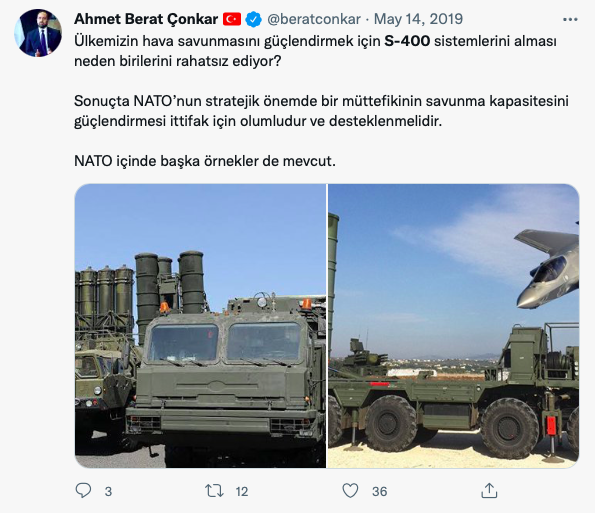
Conkar, in a tweet dated May 14, 2019, asked, “Why does it bother anyone that our country buys S-400 systems to strengthen its air defense?” and shared photos of missiles.
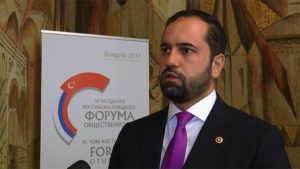
Nordic Monitor previously reported that an intercepted intelligence document alleged that Çonkar had received a $65 million bribe from Qatari intelligence. Çonkar secretly communicated with a Qatari intelligence officer to receive the cash a week before he pushed an agreement that allowed the deployment of Turkish troops to Qatar through the Foreign Affairs Committee. The revelation was made in 2019 during the testimony of Rear Adm. Sinan Sürer, who was responsible for the external intelligence branch of the Turkish military, officially known as the General Staff Department for First Intelligence Analysis Assessment.
Another delegate, Çağatay Kılıç, the head of the Turkish Parliament’s Foreign Affairs Committee, said in a statement to journalists in June 2021 that the S-400 issue was closed for Turkey. Kılıç said that the US did not stand by Turkey and that as a result, Turkey made its own decision and continued on its way, claiming that Turkey had not violated any international agreement.
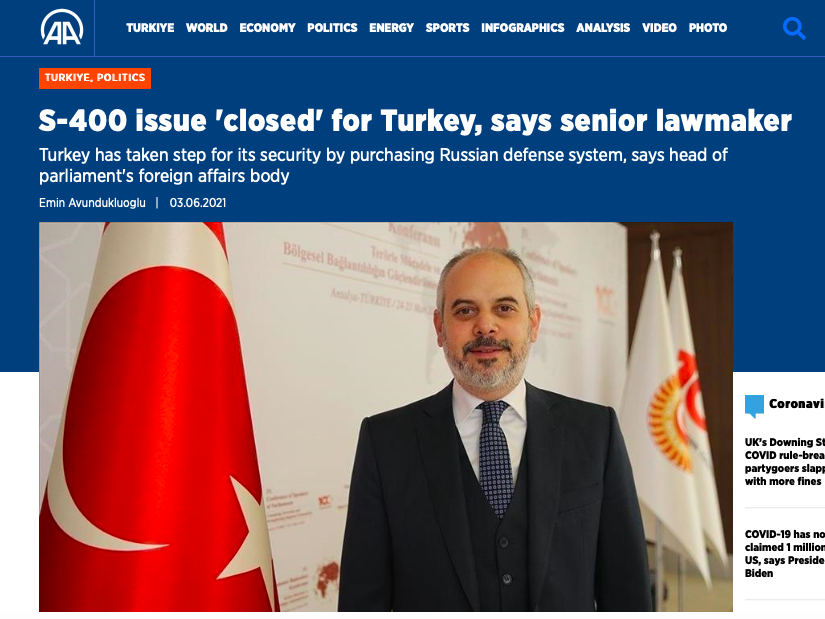
Heading a parliamentary delegation to Washington, D.C., in June 2021, Kılıç harshly criticized Senator Bob Menendez, chairman of the US Senate Committee on Foreign Relations, for prioritizing his family relationships at the expense of damaging ties between Turkey and the US. Kılıç claimed that Senator Menendez made moves against Turkey based on populist and family motives because his wife is Armenian and that he did not want to hear the truth about the Armenian genocide.
“We know his wife is in the Armenian diaspora. It’s not right to make moves in politics based on populist and family motives that could damage relations with a country, a parliament and a nation,” Kılıç had said.

Another deputy in the delegation is retired senior diplomat Volkan Bozkır, who was president of the 75th session of the United Nations General Assembly (UNGA).
Bozkır, who shared a remarkable number of posts about Russia on his social media accounts, previously told his American counterparts that Turkey was loyal to the S-400 agreement when he visited Washington as head of the Turkish Parliament’s Foreign Affairs Committee in 2019.
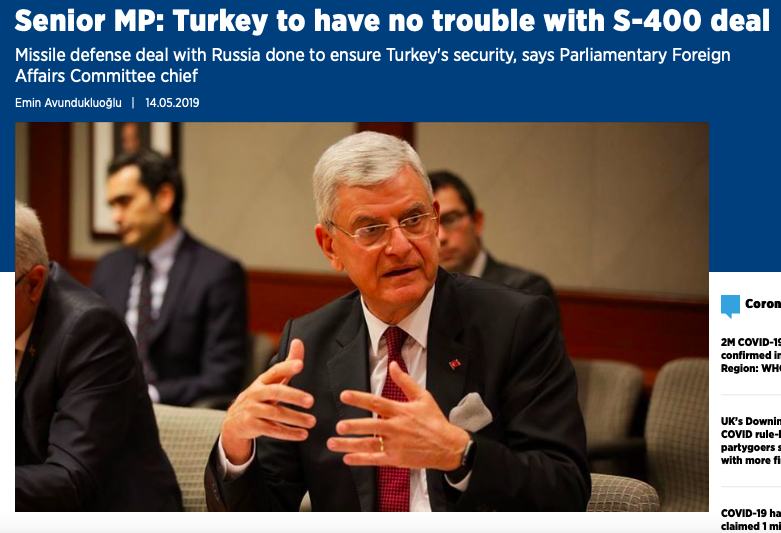
Bozkır stated that the purchase of the S-400s was related to Turkey’s security and added that Erdoğan’s statement that the agreement was over and done with and in force should be taken into account.
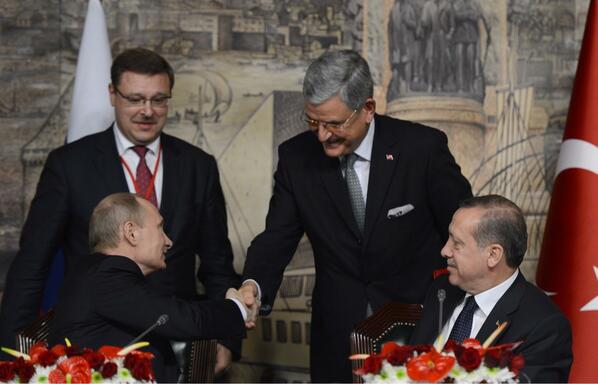
Former defense minister İsmet Yılmaz, one of the members of the delegation, also stated that he was pleased with the delivery of the first batch of S-400 missiles in 2019. “We hope this new system, which will contribute to our defense, will be beneficial and bring peace and tranquility to our country.”
Before the purchase of the S-400s, Yılmaz made an agreement with China to purchase an air defense system when he was minister, but the agreement was cancelled, after which Turkey turned to Russia.
Osman Aşkın Bak, the head of the Turkish delegation to the NATO Parliamentary Assembly, in a tweet after the S-400 missiles were tested in Sinop on October 16, 2020, shared an image that made fun of opposition figures with a message that said,”Our air defense system is ready.”
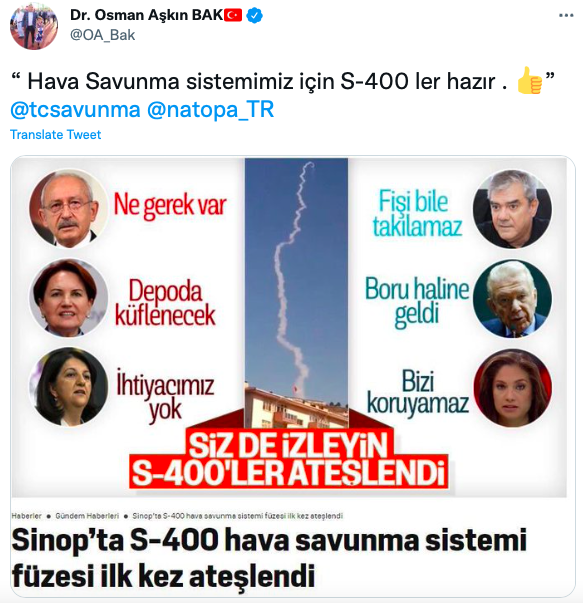
Another delegate, Mehdi Eker, leveled harsh criticism against America in an interview he gave to the pro-government Akşam newspaper in 2018 when he was deputy chairman of the ruling party responsible for foreign relations. Claiming that the S-400 missiles were purchased because the US did not sell Patriot air defense systems to Turkey, Eker accused the US of giving 4,000 trucks filled with ammunition and weapons to the outlawed Kurdistan Workers’ Party (PKK) on the pretext of fighting the Islamic State in Iraq and Syria (ISIS). He also called on the US to act like an ally if it wanted to see Turkey by its side.

Meanwhile, US President Joe Biden’s administration has through an informal notification reached out to the US Congress to seek approval for a proposed sale of missiles and equipment upgrades to NATO ally Turkey, Reuters reported on Wednesday.
The weapons package was an existing request by Ankara and includes AIM-120 medium-range air-to-air and sidewinder missiles as well as hardware and software updates for F-16 fighter jets, sources said.
The notification to Congress is part of an informal process that gives lawmakers the opportunity to question or quash potential weapons sales quietly to avoid chafing US allies publicly.
The Biden administration has refrained from publicly expressing any opinion on the proposed F-16 sale, but a letter from the State Department in March to a group of lawmakers argued in favor of “appropriate defense trade ties” with Turkey, without openly supporting it.
Experts say that after Russia’s invasion of Ukraine, relations between the two NATO allies have improved.

